I was shocked when my dad reached over to cradle my head and kiss me. It was a rare moment of emotional intimacy from a man who was not raised to express his emotions. His tender action, followed by the words "I love you" was a gift that I still treasure three decades later. Even though he is not alive, I listen to the stories I tell of my father and the new appreciation those stories reveal with the passage of time.
My dad would be 84 if he was alive today, and he continues to live in my heart and consciousness. He grew up in an era in which being a man meant avoiding expressions of emotion, which were a "girl thing," the work of tender, nurturing, and gentle women. Or so the theory went.
His mother, who I adored, was a model of emotional frigidity married to a man who was more adept at expressing emotions. It was an odd paradigm handed down to my dad on how to be a man. Adding to these murky waters was the rigid and oppressive climate of South Africa. Growing up in that country, I assumed that manhood came with those proscribing conditions, even though I yearned for something more.
After moving to New York in 1980 as a young adult, I was stunned on my first Christmas to see my host kissing his sons and them responding with kisses in return. I'd never seen such a display before and felt at once uncomfortable and curious. This state of unsettlement kept occurring as I watched fathers and sons acting as if such displays of affection were normal. I wanted to be that kind of a man. I assumed that I could be, but not with my dad. At least not until the day of the kiss.
Two years after I arrived in New York, my parents came to visit me, knowing that I could not return home because of my refusal to serve in the South African military. On the day of his return home, my dad stood awkwardly at the gate at JFK waiting to board his flight. In a surprising move, he leaned in very close to me and said, "I don't know when we'll be together again." There were tears in his eyes and mine. And then he kissed me and cradled my head as he said, "I love you." I assured him of the same.
It was a defining moment. Perhaps the "girl thing" assumption about how my dad had been raised was not entirely true? Or was it an oppressive facade he had learned to live with for so many decades? And then the repeated boarding calls meant it was time for him to go. In my state of stunned shock and delight, I felt the tears rolling down my face as he turned to wave.
Perhaps my dad and I could forge some of that intimacy that I had discovered among American sons and fathers? But there was the physical barrier of being on two different continents. In the decade that followed, we saw each other only on two other visits he made to America. In the era before email, texting, or social media, my dad was not much of a letter-writer, preferring to leave that to my mother.
I was in a time of my life discovering that our individual stories are more than just a series of funny, embarrassing, cute, or unexpected events. I was learning that our individual stories reveal truth and wisdom in their familiarity. Well, perhaps not as much wisdom as I thought in my 20s or 30s! Beneath the familiar plotline of a particular story, the story points to the arc about our place in life that is larger than our own self.
So I turned to the stories of my life with my dad in South Africa. I found willing listeners in some of my new American friends, who like me were physically separated from their fathers because of their jobs or studies. I was beginning to discover that I can tell the same storyline in different decades of my life, but if I pay attention to the story, it presents new insights in each new season of my life.
When I was a young kid, my dad and I would take the train to the end of the line in Cape Town to a place called Simon's Town. We'd carry our packed lunches and fishing gear and go clambering over rocks to find just the right spot to fish. At the end of these outings I'd express my exuberance about the day spent fishing with Dad. I was bragging about it!
In my teen years I'd still go fishing with my dad, although less often. I'd tell the same basic story, albeit with a much "cooler" adolescent level of enthusiasm. In those tellings of the story I was much more aware of my refusal to ever kill a fish. And so my dad would help me return the fish to the ocean, or he would kill it while I looked away.
In telling the same story in my 20s, I would be aware that more than just being with my dad, the story revealed a kindness and nonjudgmental love. He never demeaned or ridiculed me about my aversion to the kill. There was no name-calling me as the dreaded "sissy" I thought I must have been.
In my late 30s and 40s the storyline offered new insight into my dad and our relationship. I understood that our fishing excursions were his way of expressing that he wanted to be present to and with me. He was doing what we all do, working with the tools he had available to him. And he did a great job at it.
In my 50s I tell that story and wonder what it must have felt like for my dad to live with the assumed normalcy that expressing emotion and affection were not the way to be. I wonder what conversation we would have about that if he were alive to do so. I suspect he'd engage willingly.
The year that Nelson Mandela was released from prison, 1990, was the year I was able to go back to visit South Africa and my family. The routine quickly became one of yearly visits in which I noticed a new tenderness about my dad, reminding me of that unexpected kiss at JFK.
On each visit each he enveloped me with a bear hug and kiss. This was not the way the dad of my childhood had behaved. He was not to be pigeonholed. As my partner and I visited, we did what we often do -- we held hands in the living room at my parents' home. On one visit my mom pulled me aside and in a very hushed tone announced, "It really upsets your dad to see the two of you holding hands." Funny, but I had not noticed any lack of comfort on my dad's part.
A few days later Dad and I were on a walk to feed the ducks at a nearby pond and I said, "Dad, I'm sorry you're uncomfortable with us holding hands." Without missing a beat he said, "I'm not uncomfortable. I'm just happy for you and your love." There it was again, this generous, heartfelt, and kind spirit.
In succeeding years I noticed a new level of emotional intimacy in my dad's close bond with a male friend that I could not have imagined in the previous decades of his life. It was wonderful to watch. I felt glad and proud for him.
My parents were friendly with the couple who lived next door to them in their retirement community. Frank and my dad began by looking out for each other and performing simply niceties by delivering the mail or newspaper to one another. As time progressed they would be found sitting on a porch together drinking beer and reminiscing about their lives or sharing their excitement over an upcoming rugby or cricket game on television.
On one visit my dad expressed how glad he was for the choice he and my mother had made, albeit with obstinate resistance from him, to move into their retirement community. When I asked what made him happiest about the decision he said, "I wouldn't have Frank as my friend if we weren't here."
Years later I sat in Frank's living room with him and his wife drinking tea and discussing my dad's then-recent death. Frank beamed as he said, "I miss your dad every day. He was a true friend." I was unprepared for the tenderness of what followed as Frank choked up with tears in his eyes and said, "You know, Robert, I loved your dad." I received it as an eloquent eulogy to my father and a blessing of the intimacy between Frank and Dad.
The quest for a more fulsome emotional relationship with Dad has come full circle. My yearning for a more authentic relationship with my father had led us to new ground. But it wasn't just about me. Dad had been a willing participant in his own story and search for what it meant to be a man.
I'm thankful for the journey we made together. We may not have fulfilled one another's expectations to the fullest, but we sure worked at it from a place of love, redefining our once limited perceptions of what it means to be a man. It would be nice to pull my dad in close, cradle his head, giving him a kiss and saying -- "I'm not sure when we'll see one another again. But I'm proud of you and love you, Dad."
ROBERT V. TAYLOR was the world's first openly gay Episcopal dean. His work has been featured by NPR, NBC Los Angeles, CNN.com, The Huffington Post, The Advocate, and many other national outlets. He is chair of the Desmond Tutu Peace Foundation in New York and founding chair of the Committee to End Homelessness in King County, Washington. He is a graduate of Rhodes University, South Africa, and Union Theological Seminary, New York. He lives in Seattle and on a farm in rural eastern Washington. Learn more at www.robertvtaylor.com.
Op-ed: Dad, Welcome as You Are
The world's first openly gay Episcopal dean shares a personal story of father and son's emotional intimacy.

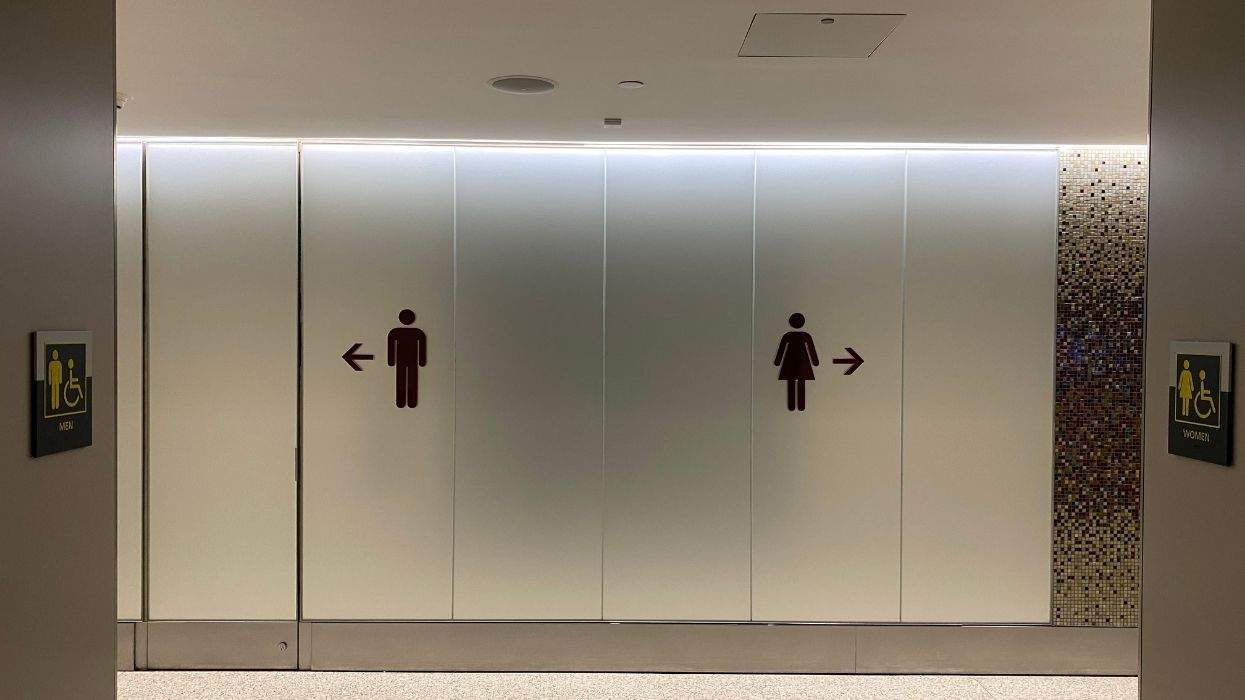
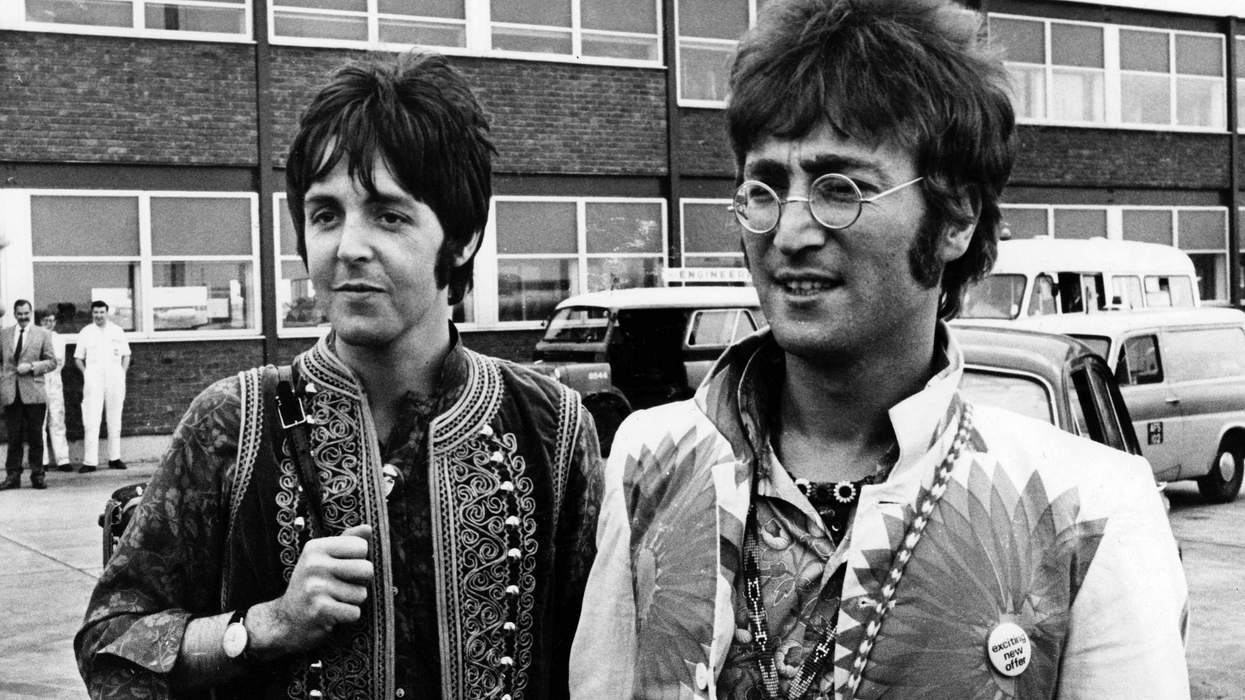
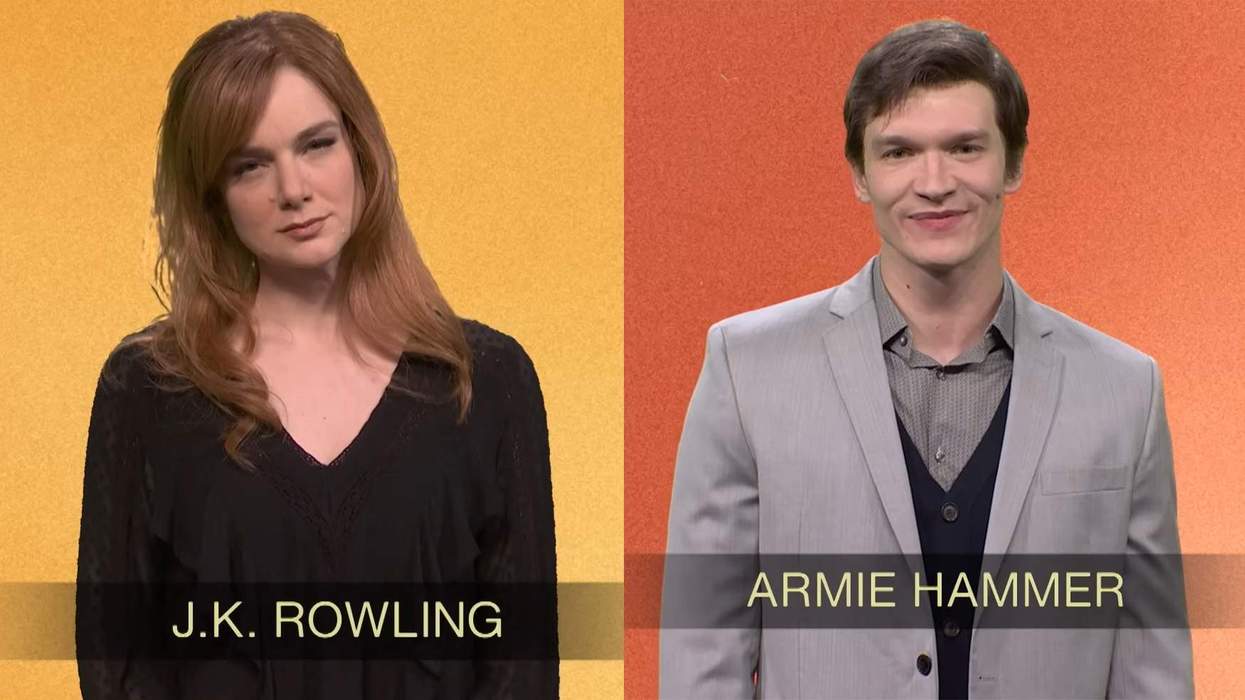
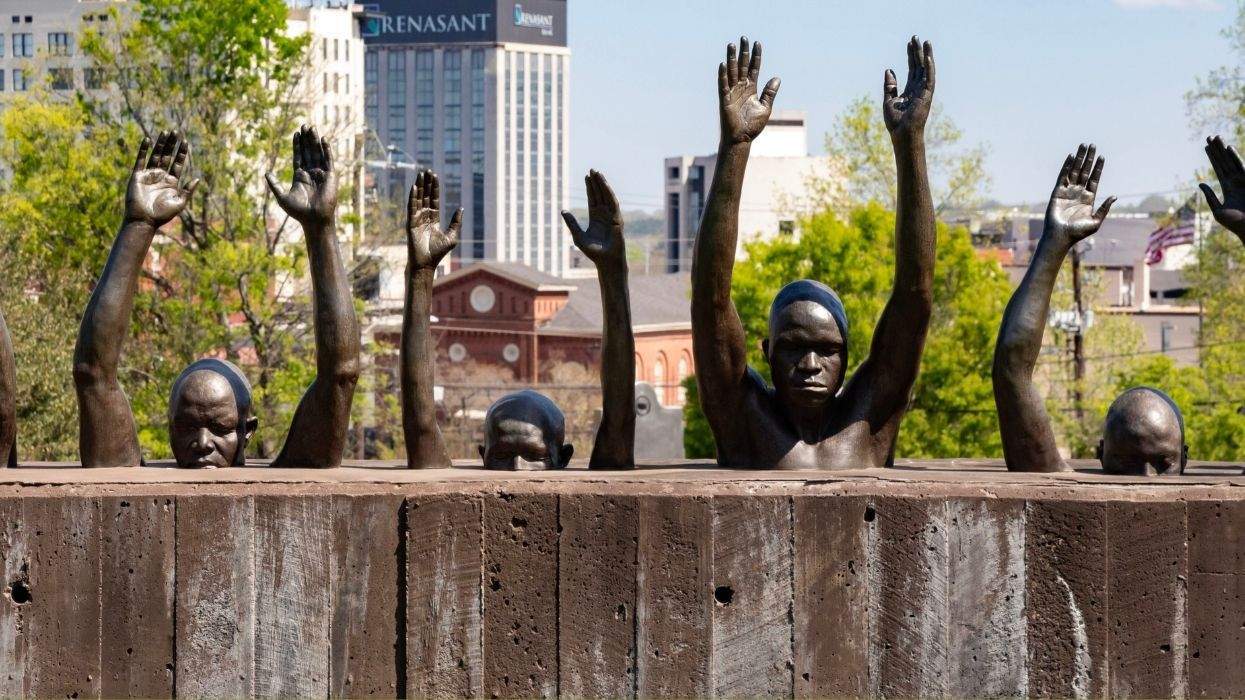


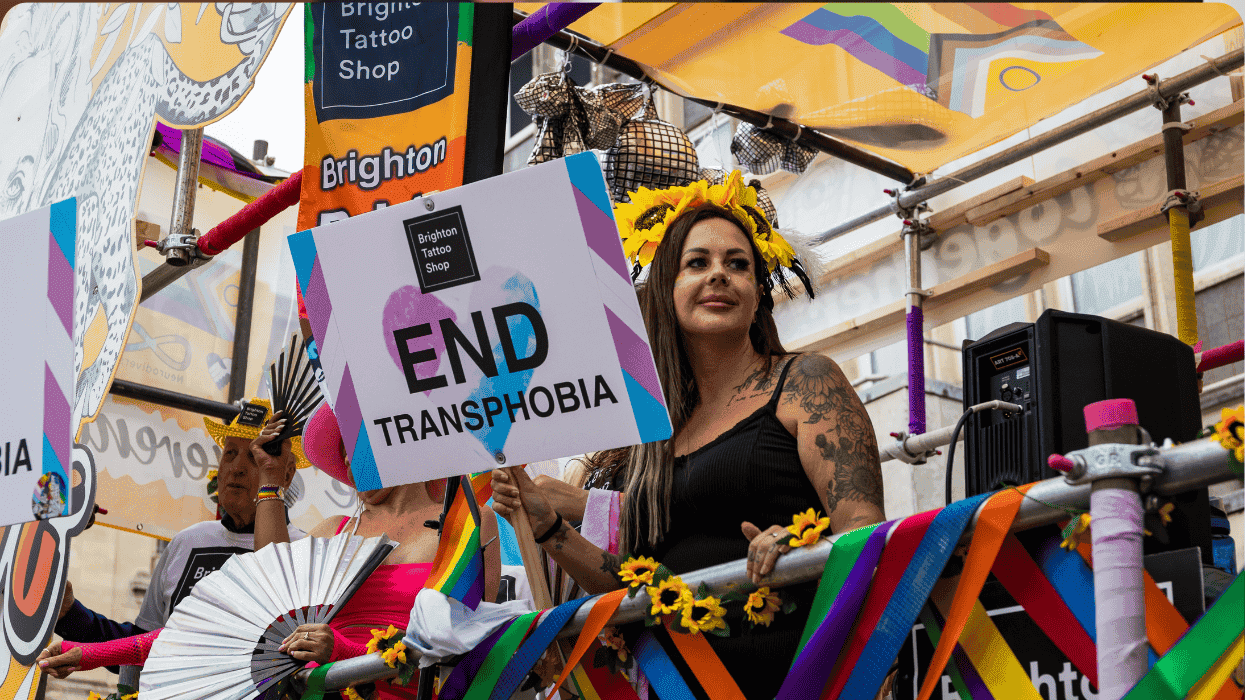







Charlie Kirk DID say stoning gay people was the 'perfect law' — and these other heinous quotes
These are some of his worst comments about LGBTQ+ people made by Charlie Kirk.